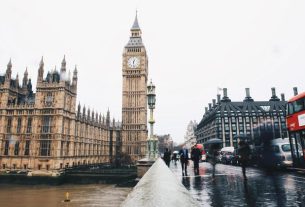(Beirut) – Turkish border guards are indiscriminately shooting at Syrian civilians on the border with Syria, as well as torturing and using excessive force against asylum seekers and migrants trying to cross into Turkey, Human Rights Watch said today. The Turkish government should investigate and hold accountable border guards responsible for these grave human rights violations, including unlawful killings, and end the longstanding impunity for these abuses.
On March 11, 2023, Turkish border guards viciously beat and tortured a group of eight Syrians who were attempting to cross irregularly into Turkey. A man and a boy died in Turkish custody, while the others were seriously injured. Six guards are under investigation by Turkish authorities for their alleged role in the attack. On March 13, a Turkish border guard shot and killed a 59-year-old Syrian man who was plowing his land in an area adjacent to the border. No information has been made available about an investigation into this killing. Human Rights Watch wrote to the Turkish ministers of justice, interior, and defense on April 20, 2023, requesting updates on both incidents.
“Turkish gendarmes and armed forces in charge of border control routinely abuse and indiscriminately shoot at Syrians along the Syrian-Turkish border, with hundreds of deaths and injuries recorded in recent years,” said Hugh Williamson, Europe and Central Asia director at Human Rights Watch. “Arbitrary killings of Syrians are particularly egregious and part of a pattern of brutality by Turkish border guards that the government has failed to curb or investigate effectively.”
Since the beginning of 2023, the Syrian Observatory for Human Rights has recorded 11 deaths and 20 injuries along the Syrian/Turkish border caused by Turkish border guards. Human Rights Watch independently documented and verified two such incidents.
In early March 2023, Human Rights Watch obtained nonexhaustive data from an organization monitoring hostilities in Syria, that documented 277 individual incidents between October 2015 and April 2023. The monitors recorded at least 234 deaths and 231 injuries, the vast majority of which occurred while victims attempted to cross the border. Twenty-six incidents involved children, with at least 20 killed and 15 injured. Significantly, at least 6 people who were not attempting to cross the border were shot dead and another 6 were injured. The organization requested not to be named out of concern that its humanitarian work could be negatively impacted by Turkish authorities.
Turkey’s land borders are protected by army border units of the Turkish Armed Forces. Gendarme units, also on duty at the borders, operate under the authority of the land forces command. There are also gendarme stations near the border charged with regular rural policing activities. In documenting the abuses, the majority of cases recorded involved the Turkish Armed Forces, with 28 of the 273 incidents recorded involving Gendarme units.
Turkey has taken in about 3.5 million Syrians, hosting more refugees than any other country. Turkey has granted many of them temporary protection status, and sought to provide them with basic services, including medical care and education. However, Turkey’s generous hosting of large numbers of Syrians does not absolve it of its obligations to respect the rights of others seeking protection at its borders. In October 2022, Human Rights Watch also documented Turkish authorities’ deportation of hundreds of long-time Syrian beneficiaries of temporary protection, including by forcing people to sign voluntary departure forms.
While Turkey is entitled to secure its border with Syria, it must do so in compliance with international law and in particular its human rights obligations including respect for the rights to life and bodily integrity, and the absolute prohibition on torture or other inhuman or degrading treatment. Turkey is also required to respect the principle of nonrefoulement, which prohibits the return of asylum seekers to territory where they face the threat of persecution, torture, or threats to life and freedom, including by rejecting them at borders without considering their claims.
Since a contentious 2016 deal with Turkey under which the European Union pledged €3 billion and political concessions to Turkey in exchange for stepped-up efforts to curb migration and refugee flows to Europe, the EU has doubled its financial support for Turkey’s migration management to €6 billion despite documented abuses by Turkish authorities against refugees, migrants, and asylum seekers. Donor governments in Europe and beyond that provide significant financial support to the Turkish government to assist Syrian refugees should demand a thorough and effective investigation into allegations of abuse including unlawful killings and torture of asylum seekers and migrants on Turkey’s borders.
The Turkish government should urgently issue standard instructions to all border guards underscoring that firearms are only to be used when strictly necessary as a last resort in response to a threat to life, that no one crossing or who has crossed the border should be mistreated but that all should be given access to medical aid if needed. Adopting a zero-tolerance policy for violations, enforced through effective investigations and appropriate sanctions, should ensure that all border guards scrupulously respect these core legal obligations.
The Turkish authorities should also urgently conduct a full review of their border security policy, Human Rights Watch said. This should be similar to the review of policing and security policy in the area affected by devastating earthquakes which has been under a state of emergency since February 9 and where law enforcement officials sent to police the region have beaten, tortured, and otherwise ill-treated people they suspect of theft and looting.
“Violence by Turkish border guards against Syrians along the border is a longstanding problem that has gone largely unaddressed,” said Williamson. “The Turkish government needs to take urgent and effective measures to end the unlawful killings and torture of asylum seekers and migrants on its borders, and provide justice for past abuses.”
Between August 2015 and June 2018, Turkey erected a 3-meter-high wall topped with razor wire along most of its 911-kilometer border with Syria to combat smuggling and irregular border crossings. Since then, Turkish border guards have routinely violently blocked Syrians trying to flee hostilities and dire conditions, shooting at, beating, and summarily expelling them back to Syria. In November 2015, April and May 2016, February 2018, and November 2022, Human Rights Watch documented Turkish border guards’ use of violence against Syrian and other asylum seekers, migrants, and smugglers on its border with Syria.
Among the 277 violations along the border monitored by an independent organization, violations occurred across 80 distinct locations. Most of the fatal incidents were in Idlib governorate, 68.38 percent, the majority of which is under the control of Hay’et Tahrir al-Sham, a coalition of Islamist armed groups that Turkey has some influence over. The others included Al Raqqa governate with 12.39 percent and Al Hasakeh with 12.39 percent, both largely controlled by the Syrian Democratic Forces (SDF), a US-backed Kurdish-led armed group, and Aleppo governorate with 6.84 percent, northern areas of which are under the control of Turkey and the Turkish-backed Syrian National Army or the SDF. The largest number of incidents involving injuries – 43.72 percent – occurred in areas within the Aleppo governorate.
Of the 234 deaths and 231 injuries, the data indicates that 225 died and 177 were injured by Turkish border guards using weapons, and 9 died and 54 were injured due to physical assault at the hands of Turkish border guards.
Syrians are facing one of the worst economic and humanitarian crises since the conflict began in 2011, battling a fuel crisis, cholera outbreak, and rising food insecurity. Northwest Syria was severely affected by the February 6, 2023 earthquakes and recent floods. There, a population of about four million, including at least 2.6 million displaced people, almost entirely rely on humanitarian aid.
Two Recent Incidents
On March 11, Turkish border guards intercepted and tortured a group of eight Syrians who had attempted to cross into Turkey from the Syrian city of Haram in Idlib governorate, killing a boy and one man. Having seriously injured the others, the border guards summarily returned them, together with one of the bodies, to Syria within five hours. Human Rights Watch spoke to two of the Syrians who had survived, family members of two others, and a relative of the boy killed. Those interviewed said that between 10 and 15 border guards intercepted the group around 8 p.m. near the village of Harran, near Reyhanli town in Turkey.
One of the men, Zakaria Abou Yahya, 34, said he went to Turkey because of the dire economic situation in Syria: “We have nothing. Everything here in [northwest Syria] is exorbitantly expensive. And you cannot find work. I only went so I can work and to be able to pay for bread.”
He said that border guards captured them after they had walked about 150 meters past the border wall, which they had climbed over by using a ladder they brought along with them, and transported them in a vehicle to a nearby empty field. There, the guards tortured the Syrians, relentlessly beating and kicking them and hitting them with rifles and batons:
They broke me into pieces. They put us on the ground, stomped on both my hands … they even stomped on my genitals with their boots … and [they] poured 20 liters of diesel oil from the steel can [on me]. I started [shaking] my head but I don’t know, I swallowed what they were pouring. I spent two hours throwing up after that.
Another victim, Raed Musa, 35, said that the guards placed their heads between the steps of a ladder and started beating them: “They laid us down, put our heads in the spaces in the ladder and secured our necks to it. There were around 10 to 15 of them, four commanders. They didn’t ask us any questions; they just beat us.”
One man said that his 17-year-old son told him that border guards used pliers to torture him. “They grabbed him and pulled his skin with it. A dog wouldn’t bite him like that.”
Abdel Razzak al Qastal, 18, died from the beatings, witnesses said. Between 12 and 1 a.m. on March 12, Turkish guards transported five men, the 17-year-old boy who had been tortured, and al-Qastal’s body back to the Bab al Hawa crossing. Abdo al Sabbah, another 17-year-old, was left behind and what happened to him was not revealed until March 16, when Turkish authorities returned his body to his family in Syria. “Had it not been for the media attention, it’s very possible that we would not have even recovered the body,” a relative of al Sabbah said.
Human Rights Watch reviewed photos of the men and boys, including the autopsied body of al Sabbah, which shows severe bruising on his arms, legs, and back, consistent with the beating interviewees described. Musa said that upon arrival at the crossing, he was immediately taken to a hospital in Idlib. “I was puking blood earlier, I had sustained damage to my kidneys and had internal bleeding,” he said. “I remained in the hospital for four days, and now I have a cast on my foot, I don’t know for how long.”
Mazen Alouch, the head of media and public relations for Syria at the Bab al Hawa crossing, confirmed the incident to Human Rights Watch, saying that on that night he saw “marks of torture, redness, and bruising, as well as injuries to the face, head, and bod[ies]” of the people in the group.
Alouch and the interviewees said that the day after the incident, Turkish authorities summoned four of the six surviving victims back to Turkey to look at photos of officers and identify those who tortured them. They were later returned to Syria.
On March 19, Turkish media reported that a court placed three Turkish soldiers in pretrial detention, and conditionally released three others pending completion of a criminal investigation by the Reyhanli Chief Public Prosecutor’s Office. Alouch said that they receive deportees at the crossing every day. “Some get beaten lightly, others more severely, and some are tortured,” he said. “The day before [this incident], we received 12 people who were beaten even more than this group, the difference is that there was media attention because of the two fatalities [in the March 11 incident].”
Reporters Without Borders reported that on or around March 15, a Turkish political analyst lodged a complaint against a Syrian TV channel anchor and his director, both based in Turkey, after the anchor discussed the March 11 incident and the larger issue of Turkish border guard violence against Syrian refugees at the border with the analyst on air. Turkish authorities detained the anchor and director for nearly 48 hours, before the complaint was rejected and they were released.
On March 13, a Turkish guard patrolling the border in a military vehicle shot and killed Mohammed Fayzo, 59, who was working on his land near Kherbet El Joz village, in Syria, two relatives told Human Rights Watch. “[The guard] took out his gun, shot him, and then just stared,” one relative said. “A few seconds later, he went back to his truck and left.” Fayzo was then taken to a hospital in Idlib where he died some hours later.
Relatives said that people of the village went to the border wall and protested his death, only to have Turkish officers approach and tell them that what happened was “an isolated incident” and that they will hold the shooter accountable. No information about an investigation has been made public.
Since May 2016, monitors have recorded 11 incidents during which Turkish border guards shot at civilians on the Syrian side of the border who were near their homes, working on their farmlands, or herding their cattle, killing at least six people and injuring six others.
Since April 2021, monitors recorded at least four separate incidents in which Turkish border forces shot Syrian children who were not attempting to cross. Turkish forces wounded an adolescent working on farmland in the Aleppo subdistrict of Kobani (Ain al Arab) on February 16, 2023; they killed a child working in a field in the district of Jisr Ash Shugur in Idlib on January 30, 2021. They wounded two children who were herding their livestock near the border in two separate incidents in the district of Haram in Idlib in May and June 2021. Two other incidents during which Turkish border guards shot and killed two children on the Syrian side of the border for unknown reasons were also recorded.



